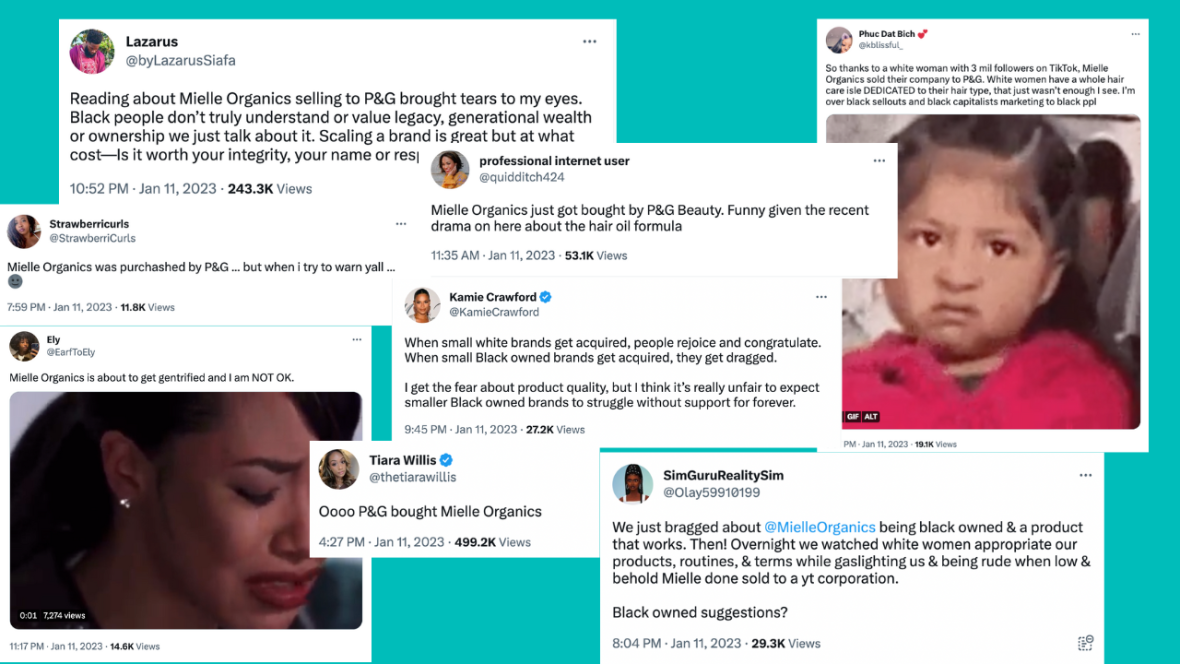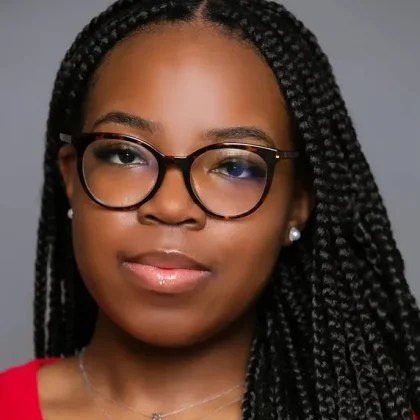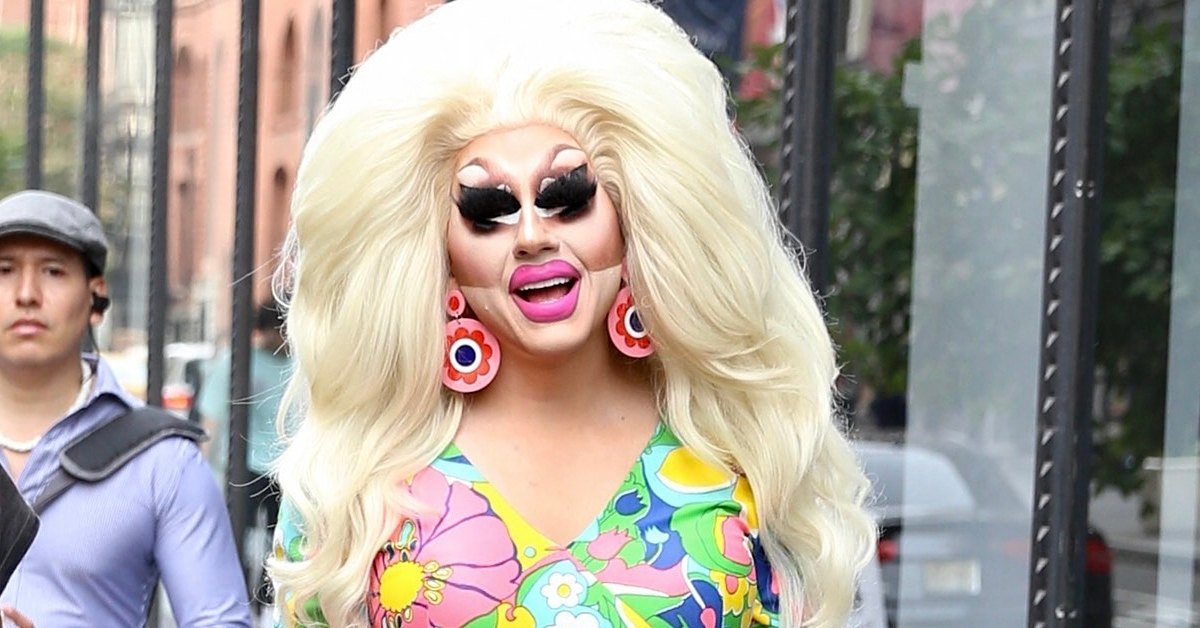The unspoken costs of building a Black business
These days, it feels like everyone is an entrepreneur. Whether designing clothes in a basement, whipping up natural products in The post The unspoken costs of building a Black business appeared first on TheGrio.

Success can sometimes feel like a double-edged sword for Black founders, especially in the era of social media.
These days, it feels like everyone is an entrepreneur. Whether designing clothes in a basement, whipping up natural products in the kitchen, or creating content on an omnipresent iPhone, it seems everyone is trying to make their side hustle their main hustle.
In the past few years, there has been a significant increase in Black entrepreneurship, with a 2022 report by the U.S. Census Bureau estimating 140,918 Black-owned businesses nationwide. However, while we love to see those in our communities taking ownership of their careers and financial destinies, behind the veneer of entrepreneurship, there are many unseen considerations when it comes to “being your own boss.”

So what is the current reality of being a Black entrepreneur in the U.S.? It should come as no surprise that the entrepreneurial route is challenging. Requiring discipline, creativity, tenacity, and often a significant amount of financial capital, the decision to start your own brand can come with unforeseen sacrifices. Many entrepreneurs can testify to early mornings and long nights dedicated to building their businesses; however, few have discussed the realities of scaling their businesses.
“There’s so much content online right now about how to start a business and be your own boss,” said Necole Kane, founder of My Happy Flo and xoNecole.com. “But, especially when you have a product-based business, there’s a lack of understanding around where you’re headed [when you embark on this journey].”
While passion is fundamental to entrepreneurship and has played a part in many success stories, an understanding of business strategies is essential for entrepreneurs — something Kane learned in real-time. Despite starting her entrepreneurial journey in 2008, Kane did not know anything about acquisitions and business lingo until after she sold xoNecole in 2018.
“When I sold my business, I knew nothing about investments. I knew nothing. I remember I did a pitch contest a few years ago in 2019. Someone was talking about IP during a pitch, and even though I was asking questions, I didn’t even know that they were talking about intellectual property. I didn’t know the lingo,” Kane recalls.
During the acquisition process, Kane wished she had a mentor to guide her — and her lack of mentorship mirrors the experience of many entrepreneurs. Despite 92% of small business owners accrediting mentorship to their business growth and survival, only 48% felt they had a business mentor to turn to for advice. These disparities are even stronger amongst women of color, as “Unlock her Potential,” a mentorship platform designed specifically to address what it identified as a systemic lack of guidance and support.
“Research has revealed that very few women of color get mentored. Even worse, many don’t even think to seek mentors. That’s how systemic racism [and] patriarchy work hand in hand,” reads the platform’s website.
As previously reported by theGrio, Black-owned beauty brand Mielle Organics was recently acquired by Procter & Gamble as an independent subsidiary of P&G Beauty. Founder and CEO Monique Rodriguez, who previously worked as a registered nurse for almost a decade, created Mielle to fill what she felt was a void in the Black hair care sector. The significant consumer base that flocked to Mielle Organics’ products clearly agreed. Today, Rodriguez leads the company alongside her husband, Melvin Rodriguez, who serves as chief operating officer. But despite the couple maintaining their leadership roles as Mielle joins the P&G family, consumers had mixed feelings about the brand’s acquisition announcement.

From the average consumer’s perspective, significant brand acquisitions translate to changes in formulas, target demographics, and prices. However, acquisitions are typically seen as substantial accomplishments and even as long-term objectives on a business level, especially given the funding disparities Black-led businesses face.
A recent study found that in 2022, Black businesses experienced a 45% drop in venture capital funding compared to a 36% decline in overall VC funding. Black entrepreneurs receive less than 2% of venture capital dollars each year, and Black women founders receive less than 1% of that already meager percentage. When it comes to Black-led businesses, especially those led by founders with unique trajectories like Rodriguez, an acquisition is like a golden parachute to success.
“It’s weird to see the conversation around the lack of money going to Black-owned businesses, especially Black women founders. But then, when you see a Black woman founder sell her business, there’s an uproar because there is a disconnect,” said Kane.
Here’s the nitty-gritty of this disconnect:
Everything is not what it seems
“People don’t understand what it takes to scale [a business] … that when we’re on the shelf at the retailers, we have to fight for our territory when we’re up against these larger companies. Our community doesn’t know what we go through as business owners,” Rodriguez told CNBC Make It.
With just 1% of Black entrepreneurs receiving business loans within their first year, compared to the 7% obtained by their white counterparts, most Black-led companies are built on the capital of their founders. On average, small-business owners spend approximately $40,000 within their first full year of business, according to Shopify’s study.
“[As Black founders], we have so much stacked against us to begin with, but that’s why we have so much community embedded in our brands. Because when you start, you’re the customer service rep, the social media manager, and the supply chain coordinator, so you’re literally responding to every email,” said Kane. “You feel more deeply connected to your audience than somebody who started with $30 million and was able to hire customer service. They were able to hire a kick-ass social media team and have an agency to handle that.”
Selling out or selling up?
Let’s say a Black-led brand has beat the one-in-five odds of business failure, according to the U.S. Bureau of Labor Statistics as reported by LendingTree. Growth is usually the next step on their entrepreneurial vision board. For instance, Mielle Organics became the fastest-growing Black-owned haircare company in the U.S. after receiving a $100 million investment from private equity firm Berkshire Partners in 2021 that increased the company’s value tremendously. While gaining investors alleviates some of the financial burdens for business owners, these investors also gain a percentage of the company’s stakes in return — which means, depending on the agreement, they have a say in certain aspects of the company’s decisions. The decision-making power that comes with investments can lead some to believe they are precursors to larger acquisitions, as seen with Mielle Organics.
In truth, consumers are not upset that these businesses are growing, but more so that they are losing the security and reassurance that comes with the “Black-owned label.” For consumers, it feels like a breach of trust. Twitter user Uju Anya explained the sentiment in a thread explaining Black women’s reservations towards Mielle Organics’ acquisition.
“So… Procter & Gamble (P&G Beauty) just announced it bought Mielle Organics… which is what Black women said was happening or would happen. Listen. To. Black. Women […] As I said many times in my original thread, I don’t begrudge Mielle their right to expand their business and get new customers. My point was and continues to be: Stop shaming, insulting, gaslighting Black women who rightfully recognize these expansions don’t always benefit us.”
There are likely several reasons why founders like Monique Rodriguez, Lisa Price of Carol’s Daughter, or Richelieu Dennis of Shea Moisture lean into acquisition when thinking about scaling their businesses. Regardless of whether the objectives are financial or personal, the fact is the decision is often just as unsettling for the founder as it is for the consumer.
The emotional consequences
Kane compares going through the acquisition process to a divorce. Despite the assumed financial benefits of selling one’s business, the process can be complex for Black entrepreneurs who often spend years fostering relationships with their audience. When Kane founded her blog Necole Bitchie in 2007 — which later became xoNecole, she couldn’t predict the heights her brand would reach. XoNecole was eventually acquired by the Black-owned Will Packer Media in 2018. Following the shift in ownership, Kane stayed with the publication for five years as founder and editor-in-chief, which she recently described as a very isolating time in her life in a now-viral Twitter thread.
“You feel guilty for feeling the way you feel because you made it to a place that most people wish to make it to. I had to deal with the depression that came out of that, and it was extreme because I didn’t know who I could turn to,” Kane admitted.
Since her quiet departure from XoNecole, Kane has turned her focus to My Happy Flo, a menstrual health brand producing products that naturally support hormonal harmony and aim to reduce the risks of common reproductive health complications without the side effects caused by most oral contraceptives and pain medications. Through this new venture, the former media mogul is entering the arena of personal care products and facing a new side of the business world.
“It’s difficult when you’re in the beginning stages. You know that your audience is supporting you because you’re Black-owned, and you’re putting their needs first. But you also know that the trajectory you want to go on if you want to get this product in as many women’s hands as possible, especially Black women for their healing. Like, it’s just confusing for me right now,” said Kane as she reflected on the public’s reaction to Mielle Organics’ acquisition.
“You’re doing the best you can. Your customers are seeing you try to show up on social media, which is even harder nowadays with the algorithms, and provide the best customer service ever. You’re dealing with manufacturers. … It’s so incredibly overwhelming,” she continued. “And then on top of that, seeing the way a lot of people turned against Mielle, especially her consumer base, that was scary for me.”
Look at the bigger picture
On the other side of these significant corporate acquisitions is a silver lining. By working within non-Black frameworks like P&G, L’Oreal and even mentor-rich incubators like Sephora’s Accelerate program, Black founders are able to pay it forward to other Black-led initiatives. For instance, when Dennis sold Shea Moisture to Unilever, he used a portion of the money to fund the $100M New Voices Fund designed to invest in and empower women of color entrepreneurs. Lisa Price, the founder of Carol’s Daughter, launched “Love Delivered” in partnership with the Mama Glow foundation to support Black maternal health issues. Since then, Carol’s Daughter has committed over $10,000 to support its ongoing programs and mission to solve reproductive injustice.
On a similar note, as part of Mielle joining P&G, both brands committed $10 million to Mielle Cares, a nonprofit organization providing resources and support to advance education and economic opportunities in Black and brown communities. As Kane continues to grow MyHappyFlo, she looks forward to the opportunity to scale her business as an upside to entrepreneurship; one she aims to pay forward when the time comes.
“We have to continue to have people like [Dennis], making those types of moves to one day, have a Black Procter & Gamble that’s acquiring other Black-owned businesses,” Kane stressed. “We are selling the businesses off to get the assets we need to pour back into our community.”

Haniyah Philogene is a multimedia storyteller and Lifestyle reporter covering all things culture. With a passion for digital media, she goes above and beyond to find new ways to tell and share stories.
TheGrio is FREE on your TV via Apple TV, Amazon Fire, Roku, and Android TV. TheGrio’s Black Podcast Network is free too. Download theGrio mobile apps today! Listen to ‘Writing Black‘ with Maiysha Kai.
The post The unspoken costs of building a Black business appeared first on TheGrio.












